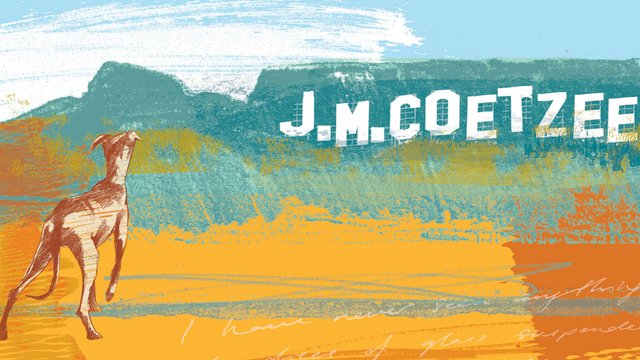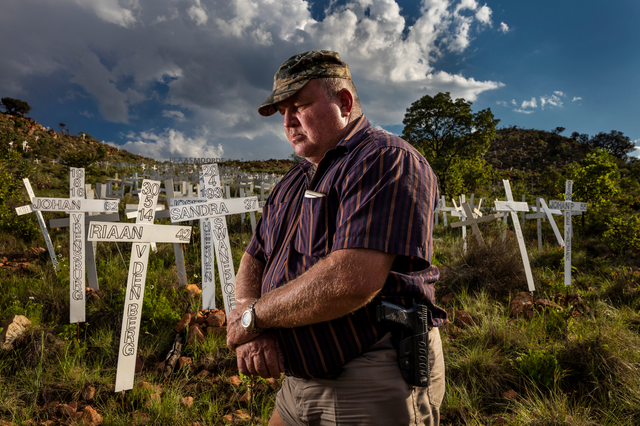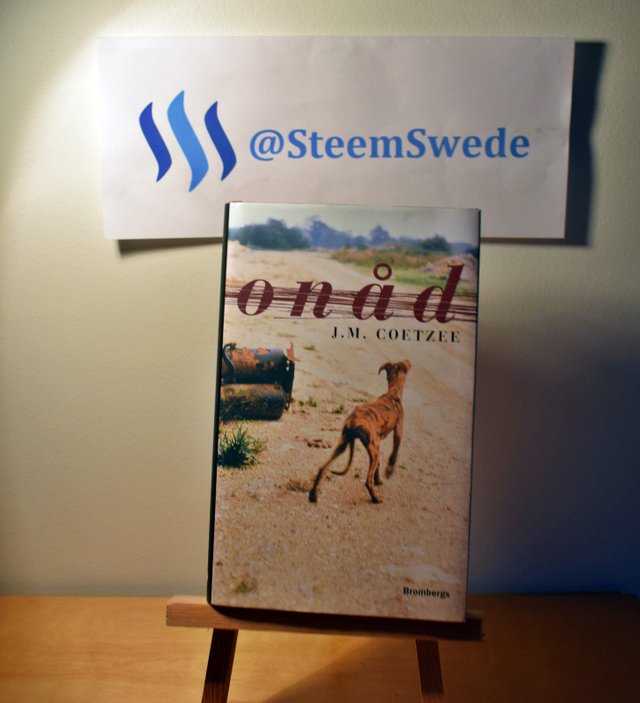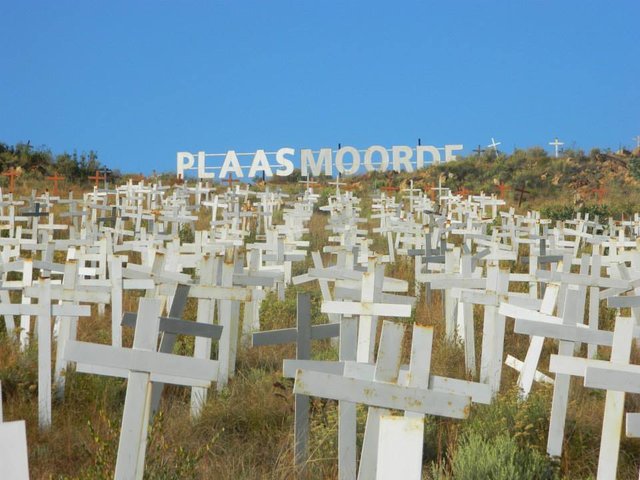[BOOK REVIEW] Disgrace (1999) by J. M. Coetzee 📚
The plights of white minorities of South Africa are unimportant and excluded from the narrative. When they fall victim to poverty and discrimination, it's shown on YouTube rather than on CNN or BBC. When whole families are raped, slaughtered and degraded in the most unimaginable ways (inspired by South African leaders), we can read about it on "far-right" pages on the internet rather than in the newspaper. The reason for this is that their destiny fits so badly into the politically correct description of reality. The ethno-masochistic view of history is dualistic and bipolar (evil, powerful whites against innocent, helpless non-whites), but the fate of South African Boers shows us that reality is complex and multi-polar. Therefore, their destiny must be concealed at all costs.

There are some exceptions, one of which is Nobel laureate J.M. Coetzee's book Disgrace. Coetzee belongs to the South African writers who once were critical of apartheid, but has gradually become as unsure of the virtues of the "rainbow nation".
In the novel we get to follow the South African university teacher David Lurie. He's a middle-aged man with a fairly routine and dull life. Lurie is an academic with a strong interest in the romantic writers (Byron et al.), but has to spend most of his time teaching an irrelevant course on "communication." He's an aging casanova, but as age has taken its toll, he is content with visiting a prostitute once a week.
Lurie's life, however, takes an unexpected direction when he engages in a romance with one of his students, something that he justifies with his romantic ideals despite the many problematic aspects. The romance is revealed, and the old Casanova is subjected to a minor witch hunt. Coetzee's description of the nuances of the witch hunt is compelling. If Lurie will submit and show regret, nearly all of his sins can be forgiven, but Lurie refuses and thus ends up in disgrace. Ridiculed by his ex-wife and shunned by friends, he's forced to leave the university and move to his daughter, Lucy, whom he hasn't seen in a long time.
The daughter is lesbian and lives alone on a farm in the countryside. She takes care of dogs and is also active in a local animal rights organization. Lurie discovers how vulnerable she is as a single white woman in the new South Africa, something that culminates when he and his daughter are exposed to something that today belongs to everyday life in the country. The farm is invaded by a group of young, black men, Lurie is beaten and the daughter is raped.

It's however only after these attacks that one fully understands how bad the situation is. Partly through the daughter's choice to accept the unacceptable, partly through Lurie realizing who's behind it all. When he demands some form of action in response, he's dismissed as a disturber of peace and the false facade of neighborliness. Coetzee excels as a writer in those paragraphs, and I felt a growing lump of nausea in my stomach when I discover the horrible truth together with the old helpless academic step by step.
Coetzee himself is very active in animal rights issues, and it's through his growing activity in the small veterinary station that Lurie later finds a purpose. Even in the description of the poor animals, and Lurie's growing feelings for them, Coetzee's storytelling triumphs. Lurie is a man who lost everything, and it's in the solidarity with the most vulnerable, the neglected dogs, whom he finds something worthwhile. Lurie is forced to confront animal cruelty of various kinds; the manifestation of a pure hatred of dogs due to the fact that the dog is seen as a friend of the Boer.

It's by no means an easy or uncontroversial topic that Coetzee chooses to address. Describing South African whites as innocent victims of pure racism is a good way to be labeled racist. But he cleverly avoids the elements that could make the novel be branded as "dangerous". In today's climate this is something of a balancing act, a single wrong word or theme may suffice for the watchdogs to throw themselves over a writer and tear his legitimacy into pieces. Coetzee, therefore, rarely describes the race of the people in the story, but it becomes apparent gradually. The main character is by no means sympathetic, which makes it easier to take him seriously. Nor does the book end with any sort of revenge. Coetzee instead goes to lengths to make it opaque. You can interpret his message as having to accept the unacceptable, something that is hardly healthy or dignified when the unacceptable is a rape performed by neighbors whom you choose to stay with.

On a whole, this book is a strong interjection in the non-existing debate about the new South Africa. Lurie gets to see his daughter defiled, without being able to do anything about it. Coetzee describes a situation in which white people are at the mercy of others, and as a reader, I get a glimpse of a truly horrible situation. Since it's of the highest order on a purely literary level, it's a book that is appropriate to give to even your most politically correct friends. Their simplified view of South Africa will hardly remain the same.

Thanks for introducing me to this. I just wish I had time for reading at the moment, but I'm about to get going on Steemit and that's taking up all my time. Race is such a fraught issue. The overall attitude of the people you describe in your first paragraph - people like me - is that the white European settler has brought on whatever struggles he faces himself, by conquering a land that wasn't his, then excluding the dispossessed from the political and every other process. You chain a dog in a darkened shed and are then surprised that when he gets out he's mad and wants to bite everything that moves.
But of course life is not so simple, as you say and Coetzee evidently illustrates. Nothing - not even the history I've described - can excuse the things you speak of, the violent and sexual crimes etc., or the corrupt leadership that has seen the example of Mandela and chosen to ignore it for personal gain. When apartheid ended I guessed it would take 20 years for things to settle down - the end came too quickly in a way - but that based on the assumption that Mandela that would be the model. Now things seem to be going in the wrong direction, as elsewhere in the world where the colonialism of the past 200 years or whatever is coming home to roost. Lurie, and his dogs, are now the victims of the history just as surely as were the ancestors of those who make his and their life a misery. The fact is that man is a complex creature, capable of greatness but much more often of sheer badness - 'evil' or whatever word we want to use.
I completely agree with the implication of your opening, that the entrenched knee-jerk positions of both left and right prevent us seeing the situation you describe for what it is, which would be the first step to having honest discussions about it. For that reason I value your post, as I praise JM Coetzee's attempt to confront (however subtly) this uncomfortable reality head-on.
well done! beautiful book and great writer! just posted something you might like! books!! books!
Congratulations @steemswede! You have received a personal award!
Click on the badge to view your Board of Honor.
Do not miss the last post from @steemitboard:
SteemitBoard World Cup Contest - France vs Belgium
Participate in the SteemitBoard World Cup Contest!
Collect World Cup badges and win free SBD
Support the Gold Sponsors of the contest: @good-karma and @lukestokes